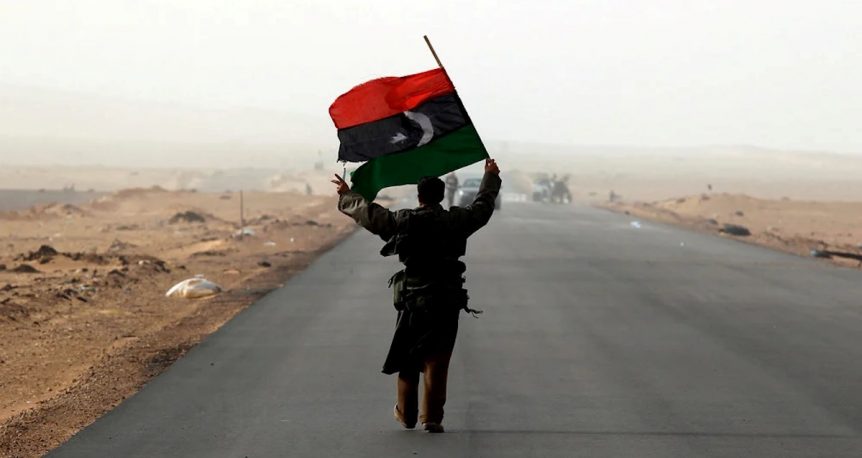The Cairo Institute for Human Rights Studies (CIHRS) organized a webinar on the sidelines of the activities of the 50th session of the United Nations Human Rights Council (UNHRC) on 24 June 2022. The webinar was entitled “Libya: A critical time for accountability and the role of the UN Fact-Finding Mission in supporting the rule of law and sustainable peace,” and was held by CIHRS in cooperation with Amnesty International, the International Commission of Jurists, Lawyers for Justice in Libya, and Defender Center for Human Rights. The webinar included Suki Nagra, Director of the Human Rights, Transitional Justice and Rule of Law Service with the UN Mission in Libya (UNSMIL); Hassiba Hadj Sahraoui, member of the UN Fact-Finding Mission (FFM) on Libya; human rights defender Marwan Tashani; Hussein Bayoumi, researcher on Egypt and Libya at Amnesty International, and Director of Lawyers for Justice in Libya, Elham Saudi. The session was moderated by Nadège Lahmar, Maghreb researcher at (CIHRS).
The webinar started with Suki Nagra emphasizing on the importance of the UN Fact-Finding Mission (FFM) in documenting the escalating violations in Libya, amid the absence of any other mechanism playing the same role at the present time, and the inability of the Libyan justice system to hold the perpetrators of grave human rights violations accountable. Nagra affirmed that there is no tolerance or amnesty for war crimes and crimes against humanity committed in Libya. Nagra added that the role of the Fact-Finding Mission is to document these types of crimes in preparation for holding the perpetrators to account.
Human rights defender Marwan Tashani explained the importance of renewing the FFM’s mandate and resuming its work, praising the positive step of the Libyan authorities in requesting its formation in the beginning. Tashani added that the current spread of violations throughout Libya is a reflection of the perpetrators’ sense that they are above any accountability.
Hassiba Hadj Sahraoui, a member of the Fact-Finding Mission, underscored the challenges faced by the mission and the constant threats to its members, while cases of arrest and prosecution were documented against many activists and human rights defenders for coming into contact with the mission. According to Sahraoui, the October report of the Fact-Finding Mission in Libya concluded that crimes against humanity had occurred in places of detention, and against migrants, in addition to cases of enforced disappearance and murder against women human rights defenders. Sahraoui added that the mission is required to track violations throughout the Libyan territories, which requires extending its mandate, to assist the victims and ensure accountability. The mission made several proposals to the Libyan authorities to strengthening national mechanisms and establishing the rule of law.
According to human rights researcher Nadège Lahmar, the violations documented in Libya are only a limited part of the aggregation of violations committed on the ground at the present time. Lahmar said that the failure of UN member states to support the extension of the mandate of the Fact-Finding Mission may imply very dangerous political message, indicating that the international community has abandoned victims of human rights violations and their right to access justice and accountability. Researcher Hussein Bayoumi said that human rights defenders working to achieve accountability have been kidnapped, tortured and assassinated with complete impunity, over the past years. Bayoumi added that the extension of the mission’s work would restore faith in the international community’s willingness to uphold justice.
Elham Saudi, Director of Lawyers for Justice in Libya, considered that the lack of accountability represents one of the greatest failures of Libya’s political process, while the Fact-Finding Mission may be the last remaining paths to truth and justice in Libya. Saudi added that the failure to extend the mission’s mandate would give perpetrators a greenlight to continue their crimes.
For their part, the representatives of the Swiss and German missions to the Human Rights Council stressed on the importance of the work of the Fact-Finding Mission, and that it has not yet completed its role, which requires an extension of its mandate. Meanwhile, the representative of the State of Libya, Nasser Algheitta, said that while we understand the need to renew the mandate of the Fact-Finding Mission, we must also remember that the findings and results of the Fact-Finding Mission are crucial. It is now time for Libyan authorities to take action based on these recommendations and findings.
Watch the full webinar here
Share this Post

